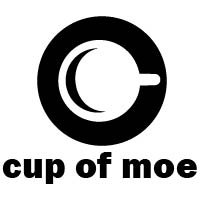We may earn money or products from the companies mentioned in this post.
Remakes have been increasingly popular in Hollywood, though not necessarily among critics. For some inexplicable reason, classic movies rank among the most remade films. NBC’s recent The Sound of Music Live airing, therefore wasn’t surprising in terms of source material. However, the concept was unique and quite frankly bold. Rather than a traditional screen adaptation, NBC opted for a live play aired on TV. The resulting TV film-play hybrid was naturally greeted by mixed reviews. While there were admittedly slipups, occasionally stale acting, and a few camera issues, the movie as a whole was an enjoyable update undeserving of the heavy-handed criticism it received.
The most crucial key to enjoying The Sound of Music Live was to alter your frame of mind. Forget that the on-screen occurrences were prancing across the TV, pretend that the cast graces a stage, and remember there aren’t any cuts or retakes. The word “live” was in the title after all. NBC based their adaptation on the 1959 play rather than the beloved 1965 film. Possibly this move sought to differentiate their production from the highly-acclaimed movie, though it unintentionally brought unwarranted comparisons to the film. Thus the remake, while remarkably faithful to the more recognized movie, did have several differences. One of the most apparent changes was the placement of the song “My Favorite Things,” which happened before Maria left the abbey, not during the thunderstorm. Instead, the children and Maria (Carrie Underwood) offered a bout of “The Lonely Goatherd” when the Von Trapp kids cowered in her room. This of course meant the puppet show unfortunately didn’t make an appearance, but this wasn’t a deal breaker. On the contrary, it increased the entertainment value for those who only saw the 1965 version.
The Sound of Music Live exhibited robust directing and stage sets, making scene changes one of the strongest aspects. With an audience viewing via TV, the set could therefore extend well beyond the normal stage area. And the NBC broadcast displayed a truly expansive background. The Von Trapp mansion featured doors which opened onto a patio, the abbey connected with the mansion, and the hill was actually a raised platform. This not only alleviated the notion of viewing a play, but allowed for quicker scene changes.
Acting was somewhat a mixed bag. Comparing the film scene by scene with the script would undoubtedly uncover a few missed lines or cues. Obvious flubs are commendably minimal, and most conspicuously came when Baron Elberfeld (Michael Park) accidentally stepped on Elsa Schrader’s (Laura Benanti) dress. In Park’s defe,nse Benanti’s train seemed rather long and neither actor broke character. A few camera angles featured slight obstructions, though this can’t be blamed on the actors. Considering that the entire show was live, the relative lack of mistakes was praiseworthy. The most noticeable flaw manifested itself as Carrie Underwood’s deadpan acting. Her non-singing scenes found a flat Maria, devoid of emotion. For a singer-turned actor in an ambitious role and no editing, Underwood can’t be faulted considerably. Moreover, her stellar singing more than compensated for her acting.
Filling the cast with Broadway stars actually highlighted Underwood’s underwhelming acting. Maria and Captain Von Trapp (Stephen Moyer) lacked substantial chemistry, though Schrader and Von Trapp exhibited significantly more mutual interest. Benanti as Schrader was a fantastic choice, with Benanti speaking pages in a mere smirk or raised eyebrow. The Von Trapp children were wonderfully cast as well, though it seemed they got far too little screen time and weren’t able to establish themselves enough. Similarly, Mother Abbess (Audra McDonald) offered her gorgeous voice and arguably stole the scenes where she and Maria appeared in union. McDonald has seriously one of the best singing voices to emanate from any speakers. Had she been the star of the show, that would still have been criminally too little screen time. Christian Borle portrayed family friend Max Detweiler perfectly, with the right amount of campiness and earnestness. Yet the multitalented supporting cast exacerbated Underwood’s acting discomfort.
Unfortunately, but understandably, The Sound of Music Live has been roasted across social media platforms. Blame this on over-ambition, and viewer unfamiliarity with the original play. A live televised play removes the sense that the audience is viewing a stage production. This negatively impacted overall reception, along with Underwood’s comparably weak acting. Give the woman credit for her bravery in accepting the role of Maria though, as well as her singing. Ultimately what hurt The Sound of Music Live the most was the bold project. To remake a movie already positions a film for criticism. Redoing a classic further amplifies potential harsh judgment. A live adaptation where most viewers draw comparisons to a different version is even ballsier. A similar production hasn’t aired in over 50 years, and honestly considering no cuts and retakes, the overall play proved enjoyable and a refreshing update. Hopefully, despite unforgiving sentiments, NBC and other networks will continue supporting such unique televised productions.
This post may contain affiliate links. We are a participant in affiliate programs such as the Amazon Services LLC Associates Program, an affiliate advertising program designed to provide a means for us to earn fees by linking to Amazon.com and affiliated sites. However, all products are thoroughly tested and reviews are honest and unbiased.

